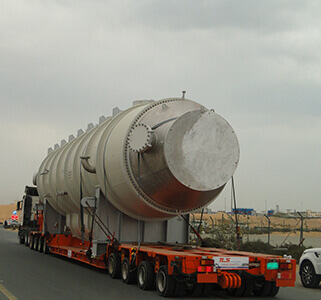The decision to install a GPS vehicle tracker on your work truck is not one to be taken lightly. It involves consideration of numerous factors, ranging from cost and convenience to privacy and efficiency. Vehicle GPS tracking technology has advanced significantly over the years, providing businesses with a robust tool for managing their fleets. However, it is crucial to weigh the pros and cons before making an informed decision.
Efficiency and Productivity
One of the primary advantages of installing a GPS vehicle tracker on your work truck is the potential improvement in efficiency and productivity. GPS tracking systems provide real-time data on vehicle location, allowing for better route planning and reduced downtime. This can lead to significant savings in fuel costs and improved scheduling, ensuring that your drivers are spending more time on productive tasks and less on the road.
Moreover, GPS trackers can help in identifying the most efficient routes, thereby reducing travel time and improving overall productivity. This is particularly beneficial for businesses that rely on timely deliveries or service calls, as it ensures that your workforce is operating at maximum efficiency.
Fleet Management
Effective fleet management is another compelling reason to consider installing a GPS vehicle tracker. Fleet managers can monitor the movements of their vehicles in real-time, enabling them to make informed decisions about vehicle deployment and usage. This can be especially useful in large fleets, where keeping track of each vehicle manually would be impractical.
Additionally, GPS tracking can help in identifying patterns of vehicle usage, which can inform maintenance schedules and extend the lifespan of your fleet. By monitoring factors such as speed, idling time, and fuel consumption, fleet managers can ensure that vehicles are being used optimally and that any potential issues are addressed promptly.
Safety and Security
Safety and security are paramount concerns for any business operating a fleet of vehicles. GPS vehicle trackers can enhance the safety of both the vehicle and its driver. In the event of an accident or breakdown, the exact location of the vehicle can be quickly determined, allowing for rapid response and assistance. This can be crucial in reducing the time a driver spends stranded on the side of the road, which can be particularly important in remote areas.
From a security perspective, GPS trackers can act as a deterrent against theft. Vehicles equipped with GPS tracking systems can be quickly located if stolen, increasing the likelihood of recovery. This not only protects the physical assets of the business but also provides peace of mind for fleet managers and vehicle operators.
Cost Considerations
While the benefits of installing a GPS vehicle tracker are clear, it is also important to consider the associated costs. The initial investment in the hardware and software required for GPS tracking can be substantial, particularly for small businesses or those with a limited number of vehicles. Additionally, there may be ongoing costs related to subscription services for accessing tracking data and maintaining the system.
However, these costs should be weighed against the potential savings in fuel, maintenance, and improved efficiency. In many cases, the long-term savings can outweigh the initial investment, making GPS tracking a cost-effective solution for fleet management.
Privacy Concerns
The use of GPS vehicle trackers raises important privacy considerations, particularly concerning the monitoring of employees. Drivers may feel that their privacy is being invaded if their movements are tracked continuously. It is essential for businesses to address these concerns openly and transparently.
Clear policies should be established regarding the use of GPS tracking, and employees should be informed about the purpose and scope of the monitoring. Ensuring that tracking is used solely for legitimate business purposes, such as improving efficiency and ensuring safety, can help mitigate privacy concerns and foster trust between management and employees.
Legal and Ethical Implications
Businesses must also be aware of the legal and ethical implications of using GPS vehicle trackers. Different countries and regions have varying regulations regarding the use of tracking devices, particularly in relation to employee monitoring. It is essential to ensure that your use of GPS tracking complies with all relevant laws and regulations to avoid legal repercussions.
From an ethical standpoint, it is important to balance the benefits of tracking with respect for employee privacy and autonomy. Transparent communication and clear policies can help ensure that the use of GPS tracking is both ethical and effective.
Conclusion
Installing a GPS vehicle tracker on your work truck can offer numerous benefits, including improved efficiency, enhanced fleet management, increased safety, and potential cost savings. However, it is crucial to carefully consider the associated costs, privacy concerns, and legal implications before making a decision.
Ultimately, the decision to install a GPS vehicle tracker should be based on a thorough assessment of your business’s specific needs and circumstances. By weighing the pros and cons and implementing the system in a transparent and responsible manner, businesses can leverage GPS tracking technology to enhance their operations and achieve their objectives.





















